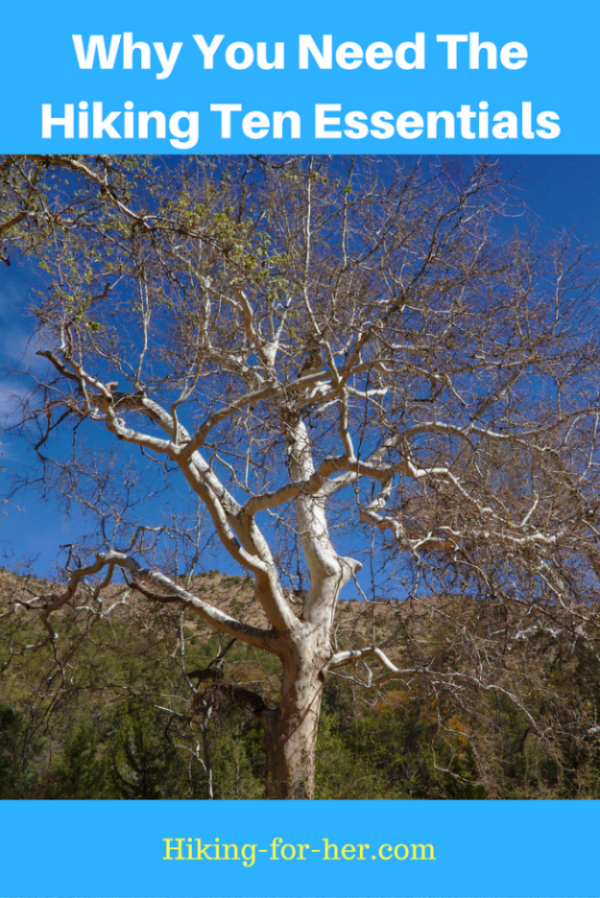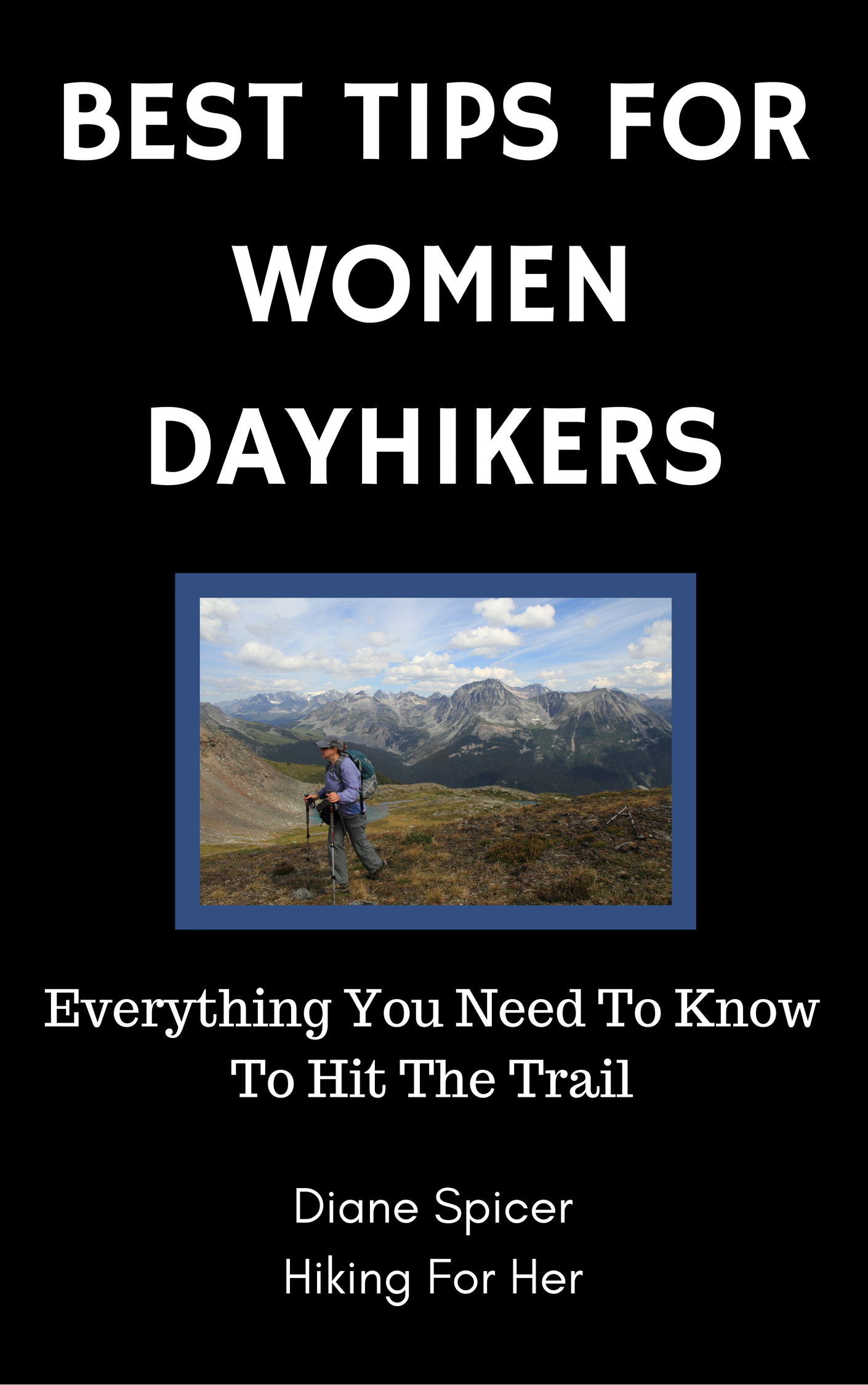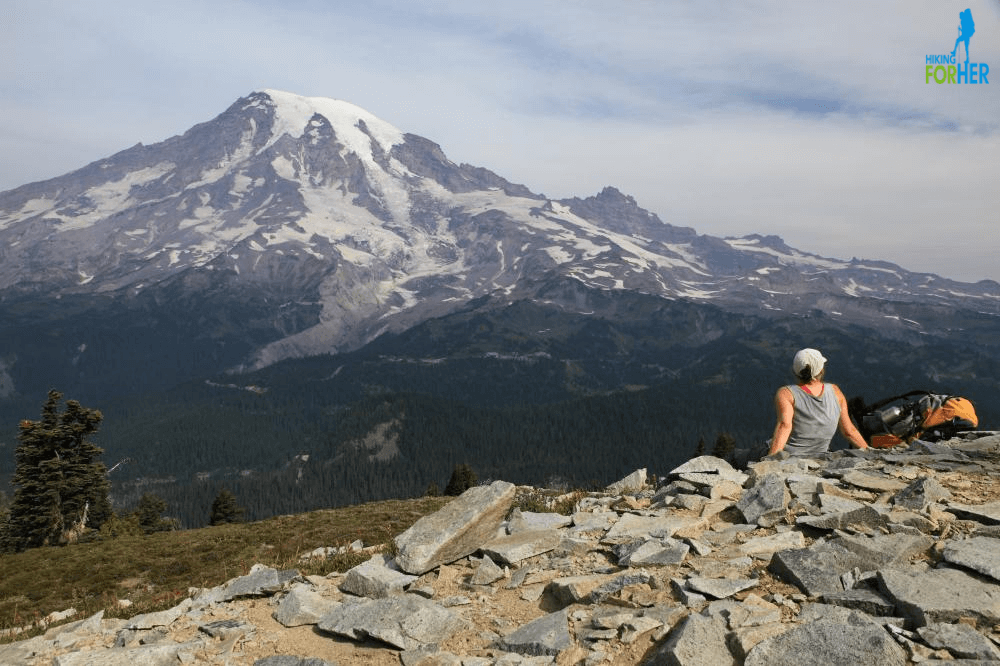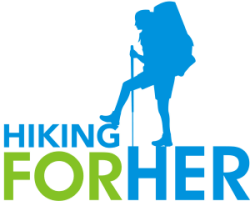
Hiking Ten Essentials:
Why Do They Matter?
By Diane Spicer
The Hiking Ten Essentials List is a hiking cliché.
Everyone talks about it!
Why?
Because the items on this list are important for your safety as a day hiker or backpacker.
So do the ten essentials matter to a hiker or backpacker enough to make room in the backpack for them?
Only if you want to be safe!
So
don't be caught without these hiking ten essentials in your pack unless you want your Professional Hiker card to be revoked when the rangers finally find you ):
Ten essentials for any hiker
Here's the quick list:
3. Sunglasses
4. Knife
5. Fire starter
6. Matches
8. Flashlight (or headlamp)
9. Map
10. Compass
But don't go just yet.
There is a great deal of nuance to this list, and in this case, the devil really is in the details.
Common sense list, right?
It makes sense that your hiking backpack should provide you with every single thing you need to stay safe, warm and "unlost" under any weather conditions.
Thus the name, the hiking list of ten essentials.
But wait!
There is a huge assumption behind this list.
For starters, the list assumes that you're wearing the right clothing, know how to use a compass and map, and have fuel nearby to start and maintain a fire to warm up your extra food.
Take a peek at the things in my pack which don't weigh much, but which I truly consider essential.
And here's an easy way to remember the essentials to keep yourself safe:
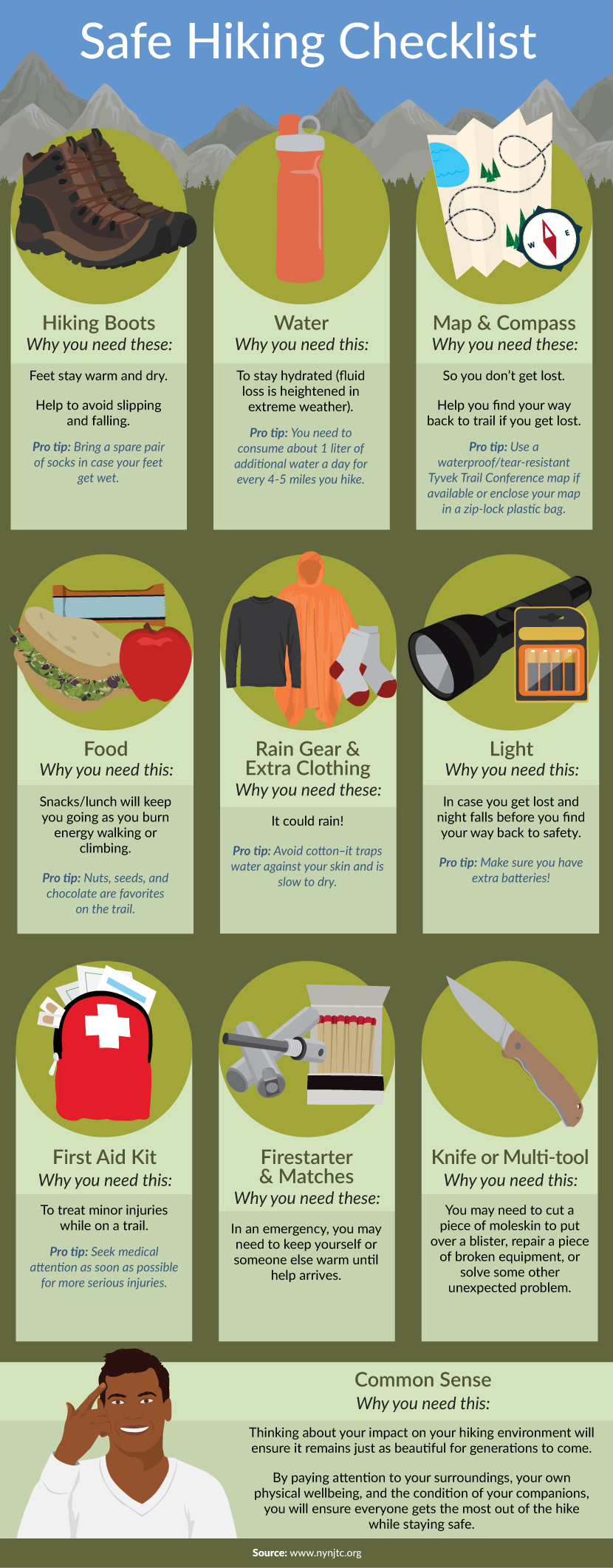
Source: Fix.com Blog
Ten essentials
revisited
Over the decades of trail time I've racked up, I've learned to carry a few other things which I think are every bit as important as these ten essentials.
Let me give you a few examples!
*One thing that rides along on every hike is a head lamp, rather than a flashlight.
- An LED head lamp leaves my hands free, and can be adjusted in intensity as needed for the task at hand.
- It's also got a longer life than the old style of lamps, especially if I remember to turn around one of the batteries so the "juice" doesn't get wasted as it languishes inside my backpack.
*I carry half of an old compact disc (CD) with me as a signal mirror. It's lighter than a mirror, and takes up less space.
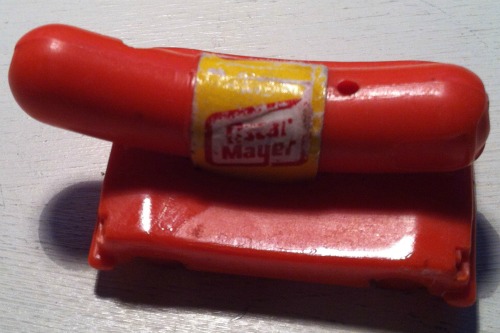 I also carry a vintage 1970 Oscar Meyer whistle as a signalling device that doesn't need daylight to be effective.
I also carry a vintage 1970 Oscar Meyer whistle as a signalling device that doesn't need daylight to be effective.*I carry a small plastic container with wads of dryer lint coated with petroleum jelly, to use as a fire starter. The climate I usually hike in (Pacific Northwest) is notorious for being damp, and I want to maximize my chances of getting a fire started.
*A small, fast drying towel is indispensable for drying off feet after a stream crossing, or for wiping sweat off your neck (or get it wet and drape it on your hot neck).
- This is the one I swear by.
In fact, I have two: a small one in my daypack, and a larger one for backpacking.
In a survival situation, it could provide an insulating layer between my space blanket and my body, thus conserving more body heat.
*Seat cushion: You know, something soft and cushy to sit on. I love cold wet rocks just as much as the next hiker, but sometimes I love a warm, dry caboose better.
Or warm and comfy when the sun shines.
- Try this ultralight inflatable pad!
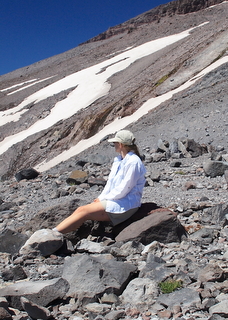 Basking in the knowledge that my hiking ten essentials are close at hand.
Basking in the knowledge that my hiking ten essentials are close at hand.*Last but not least, I have a very hole-y bandanna (Holy Bandanna, Batman!) which has been with me for decades.
I mean that literally! The edges are ragged, the color is faded, and there are several holes in it, but it comes along on every trip.
Why do I still drag it along?
Because I've used it:
- as an emergency eye patch
- to cool my head and neck off
during a heat wave
- for unexpected feminine hygiene needs (filled with
moss and attached with safety pins, you get the idea)
- as a pot holder on backpacking trips
- to cushion a delicate ground squirrel skull until I got it home
- and a bug swatter
To name just a few uses!
Bet you can answer
this important hiking question now!
More resources for
hiking ten essentials
OK, my tips for carrying the hiking ten essentials should get you started.
Feel free to email me for more sources of information, or to add your thoughts to this important topic.
I want you to be as relaxed and confident in your hiking ten essentials as possible when you're out there soaking up the big views or finding some joy in off trail adventuring!
But before you go:
A few other essentials to consider
While we're on the subject of being prepared on a hiking trail, let's mention three other types of lightweight but essential kits you should have in your backpack:
Because a hiker can never be too prepared, right?
Hiking Ten Essentials
|
I get emails all the time about what I wear, eat, carry and love to use on the trail. That's
why I provide affiliate links to you: the best gear that I use myself and have seen used by other hikers is instantly
available for your consideration, and the gear company sends a few
pennies per dollar to this reader-supported hiking website. There is no added cost to you! Everyone ends up a winner: Great gear for you, strong gear companies, and more free hiking tips for everyone. Thanks very much for your support. It's warmly and sincerely appreciated. It also helps send these hiking tips to all your virtual trail buddies around the globe. |
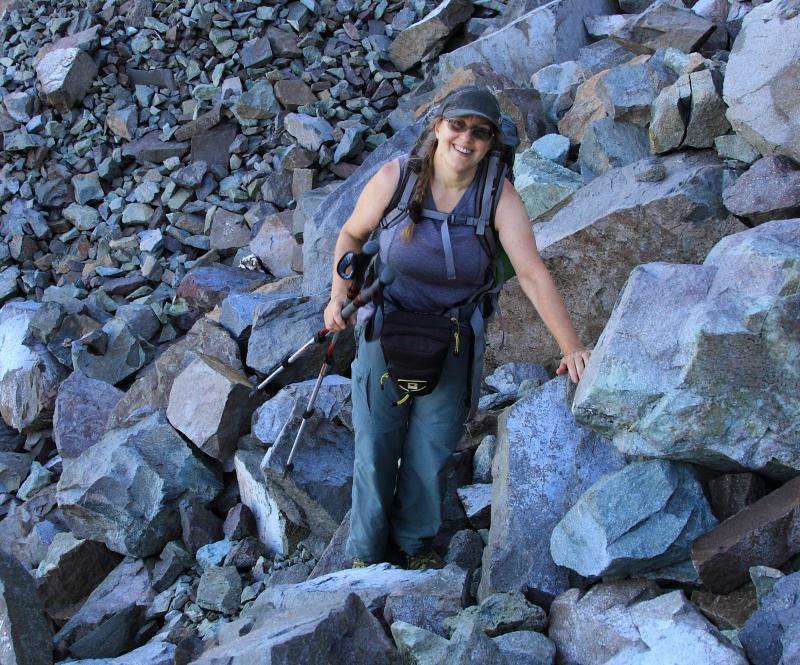 |

